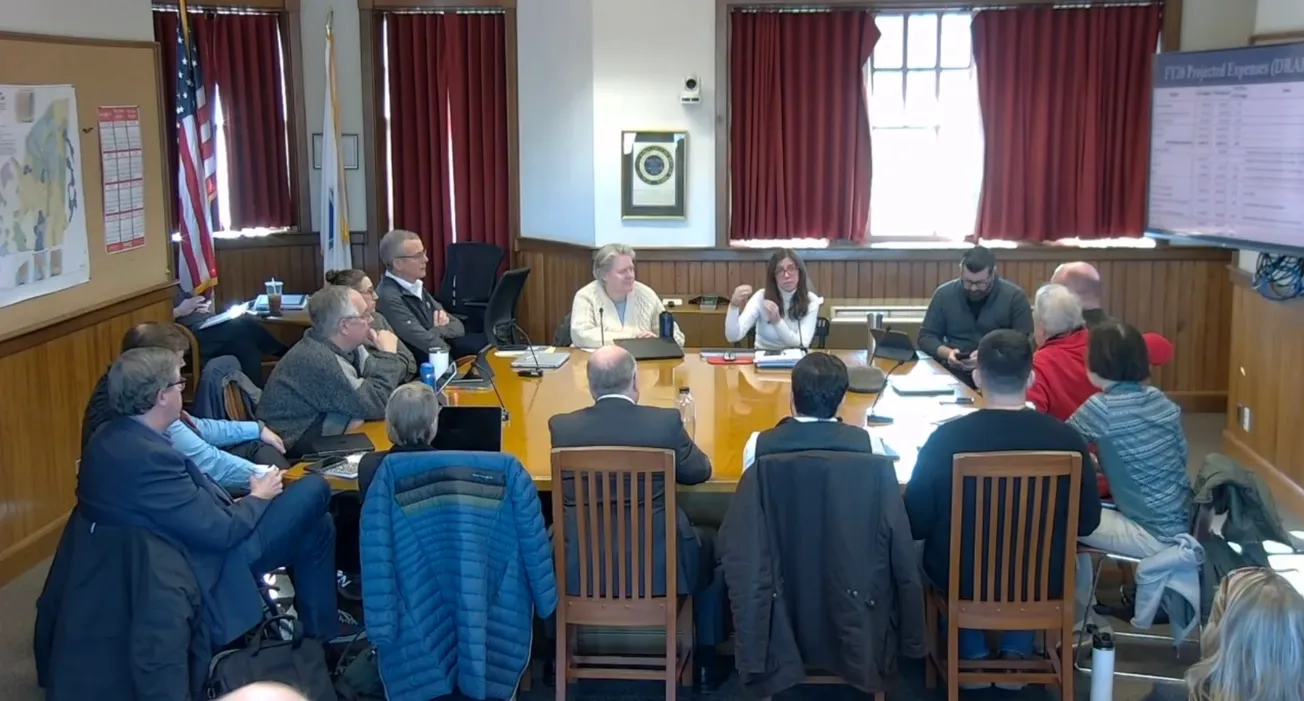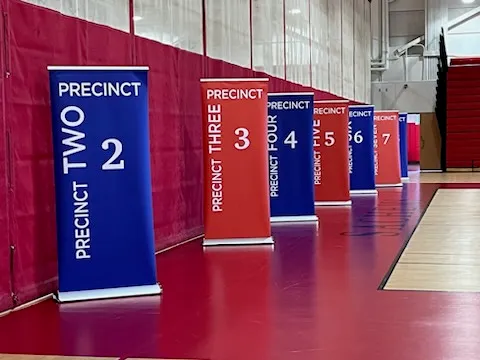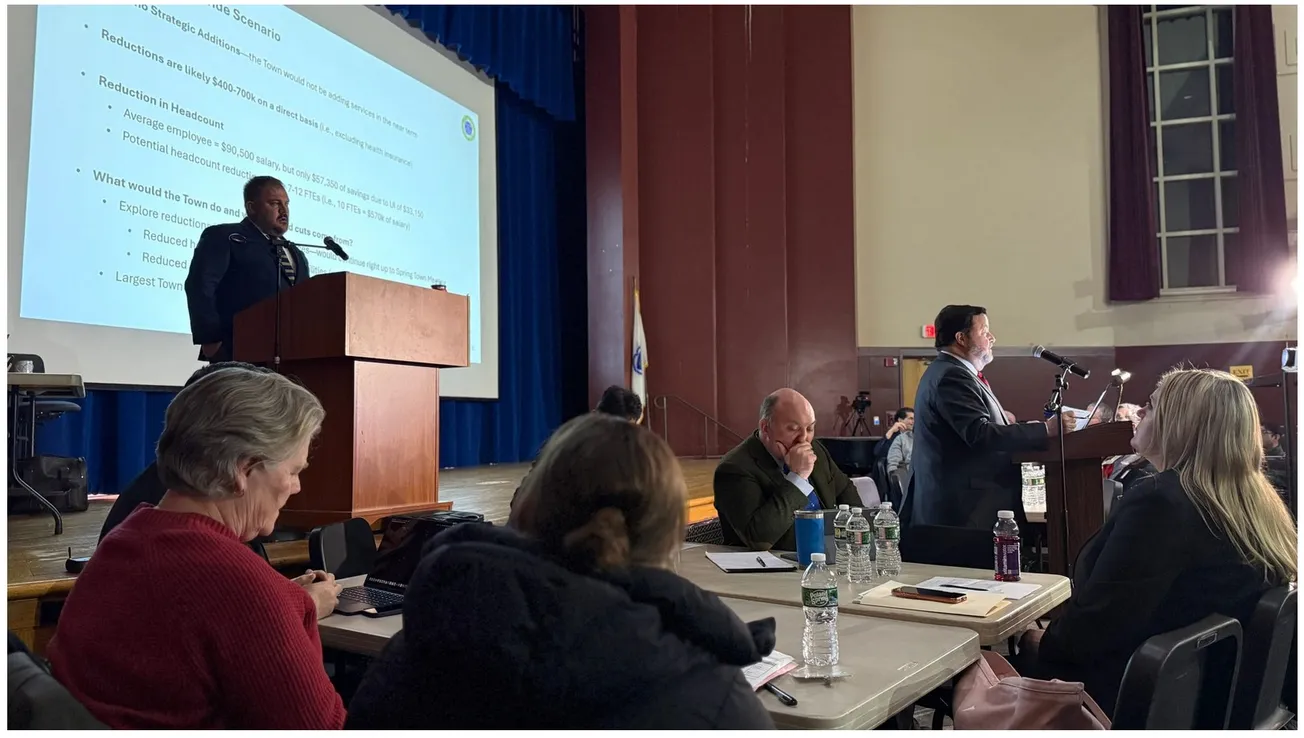Table of Contents
As Winchester enters its fiscal year 2026 budget season, officials gathered last week for a Financial Summit revealing preliminary figures that project approximately $152.7 million in revenues against growing expenses, pointing to a potential deficit exceeding $3 million.
The revenue outlook includes $127.6 million from property taxes, a preliminary estimate of $13 million in state aid (pending the governor’s budget proposal in late January), and $11.1 million in local receipts.
Major expenses include $34.9 million for municipal departments and a $64.8 million school budget projecting a 5.84% increase, alongside sharply rising health insurance costs.
Town Manager Beth Rudolph detailed how health insurance rates are expected to increase 10% for active employees and 15-17% for retirees in FY26. The Medicare supplemental plan increases came as a particular shock, as the town had budgeted for only a 5% rise based on historical averages.
“Unfortunately, it comes at the same time as we’re expecting a large increase in our active plan renewal rate. It’s kind of a double whammy,” Rudolph said, noting the town may need additional funds in fiscal year 2025 to cover the unexpected increases.
Property tax growth remains constrained by the 2.5% levy limit, with new growth projections reduced to $800,000 for FY26. Parking meter revenues continue lagging because of changed commuting patterns and MBTA construction impacts.
The School Department presented a preliminary “maintenance of effort” budget showing a 5.84% increase. Superintendent Dr. Frank Hackett emphasized this represents basic operational needs without new initiatives.
“We’re just so personnel-based, and our actual expenditures around supplies and equipment are very low,” Hackett said. “The revenue picture is different for other school systems — a lot different — so that’s always the challenge.”
The town has identified several potential revenue sources, including $350,000 in overlay funds and $257,414 from unused wage accounts.
Select Board Chair Michelle Prior suggested exploring expanded commercial hauler access at the transfer station.
“We actually have permitted excess capacity that we could receive and ship off,” Prior said. “If there’s a way to monetize the capacity that we have and the investment that the town made ... I’d like the Select Board to consider what that looks like.”
School Committee member Chris Nixon highlighted enrollment pressures from new development.
“Based on current projections, instead of 24 to 25 [elementary students] we’re anticipating closer to 55,” Nixon said, of the River Street development, noting only five or six are district transfers. “Housing development is bringing families with kids, and they are new to Winchester.”
The town has strategically deployed its $6.8 million in ARPA funding, focusing heavily on municipal and school building improvements.
Capital Planning Committee Chair Roger McPeek noted the town has committed about $15.6 million to capital projects this year through various funding sources.
Major capital needs include Town Hall HVAC and ADA improvements, Lincoln School site work and chiller replacement, and two new fire trucks planned for fiscal year 2028 and fiscal year 2029. Officials hope the newly passed Community Preservation Act will help fund some projects.
Select Board member Michael Bettencourt noted the broader context of rising costs.
“Look at water and sewer costs. We’re looking at school fees going up, transfer station fees. It’s not just taxes that are increasing, but it’s kind of all the other pieces as well,” he said.
A special education reserve fund of $458,880 exists, but can only be used for unexpected mid-year costs.
Prior emphasized the preliminary nature of these budget projections.
“We don’t know state aid until the end of January when [the House budget] gets published. We don’t know final insurance costs until April. We may not know retirements until April or May,” she said. “What we know now in January isn’t where we’re going to land.”
The town manager will present a detailed budget proposal by Feb. 15, initiating a review process leading to Town Meeting in May.
While Winchester maintains strong fiscal health overall, including operating reserves at 20% of the budget, officials acknowledged addressing structural challenges will require careful planning.







